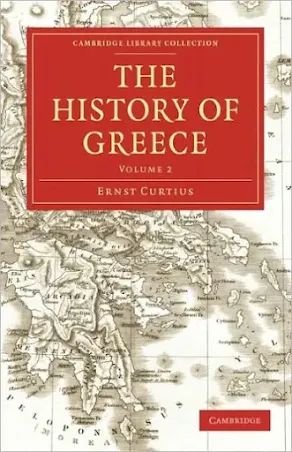
Macedon was
a region which had lagged behind the rest of the Greek world socially,
economically, and culturally, failing to develop the polis or city-state
institutions characteristic of the most advanced regions of Greece, but
remaining instead a tribal society ruled by kings and dominated by a
land-owning aristocracy.Indeed,there is some question as to whether Macedon
should at this time be counted as part of the Greek world at all, for it has
been doubted whether the Macedonians were a Greek-speaking people, on the basis
of a few passages in ancient sources that appear to speak of a Macedonian
“language”.These passages can equally well be understood to refer to a
Macedonian “dialect,” however, and though it cannot at present be formally
proved that the Macedonians were Hellenic in race and language, I think it
highly likely that they were, for three reasons: the overwhelming majority of
personal names known to have been used by Macedonians were good Greek names;
the names of the months in the Macedonian calendar were basically Greek in
form; and the religion of the Macedonians was largely the same as that of the
Greeks, with Zeus, Herakles, and Dionysos being particularly prominent.


The
Macedonians, then, were probably a Greek people (though certainly with an
admixture of Illyrians and Thracians) akin in language and culture to their
neighbors to the south and west, the Thessalians and Epeirots.Like the
Epeirots, they were divided into several tribes and ruled over by a tribal
monarchy. The main division in Macedon was between the lowland Macedonians,
living in the plains of Pieria, Bottiaia, and the Amphaxitis, and the highland
Macedonians, who were themselves divided into a number of “cantons”: from south
to north, Tymphaia, Elimiotis, Orestis, Eordaia, Lynkos, and Pelagonia .The
kings came from a royal family known as the Argeadai, who claimed descent from
Herakles, but the Argead house was rooted in lower Macedon and the cantons of
upper Macedon had dynastic families of their own who frequently claimed to rule
as independent kings over their own regions.Like the Thessalians, the
Macedonians never developed beyond the aristocratic form of society typical of
early Greece and probably depicted in Homer’s epics.
The Homeric
appearance of certain elements of Macedonian society has been widely noted; the
chief of these elements is the so-called hetaireia, an institution which bound
together the king and the nobility: it was the privilege and duty of the nobles
to attend the king as his hetairoi (companions) both in war and peace, as
cavalry fighters and officers, or as councillors and boon companions.That this
institution was deeply rooted in Macedon is shown by the existence of a
religious festival named the Hetairidia, and it is clear that the hetairoi
formed a noble class of major importance in the state.Although as chief priest,
chief judge, commander in chief, and political leader, the king embodied the
state, he was constrained in practice to function in consultation with his
hetairoi.


Thus the chief organ of state
policy was the synedrion or council of the king and his friends, in which the
king took the lead and made the decisions, but would find it hard to decide against
a consensus of his nobles.In particular, actions against the lives of leading
members of the hetairos class could normally be risked by a king only with
strong backing from his friends, and at times the king might prefer to hand
over the decision on a capital charge against a great noble to the synedrion of
his friends.The basis of the social and economic standing of the hetairos class
was clearly landed wealth: Theopompos tells us that the 800 hetairoi of Philip
II, for example, owned as much land as the 10,000 wealthiest men of the rest of
Greece put together (FGrH, no. 115 F 225b). Being proprietors of great estates
gave them an inherited status within their regions, and hence in the kingdom as
a whole. In particular,like the Thessalian nobility, the Macedonian hetairoi
raised horses on their estates, and provided the cavalry forces of the
Macedonian state, riding in to support the king in time of war, each noble with
a mounted following of his own.
Since
Macedon before the time of Philip II had no significant infantry force, but relied
almost exclusively on cavalry for its defense, their domination of the cavalry
gave the Macedonian nobility great political influence.This was especially true
when a weak king was on the throne, when factions of nobles often coalesced
around other members of the royal house claiming the throne and reduced the
state to near anarchy.
“Antigonus
the One-Eyed” By Richard Billows,pages 18-20






















































